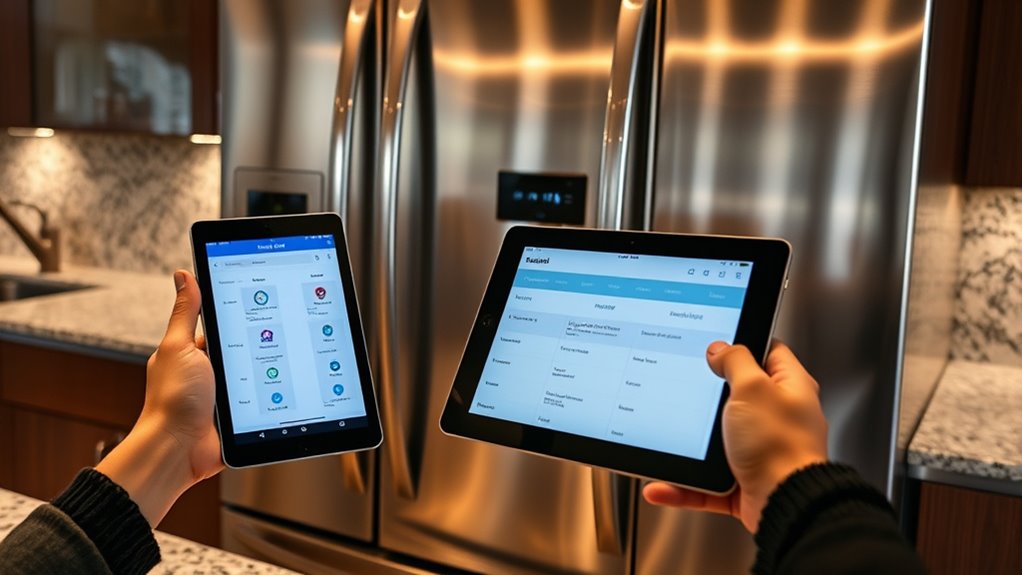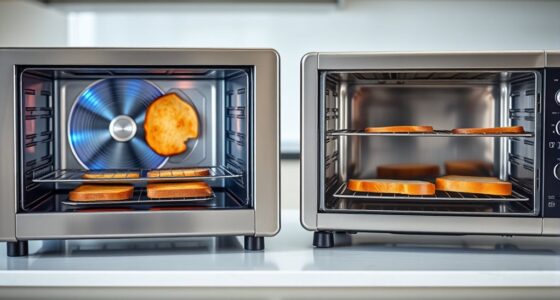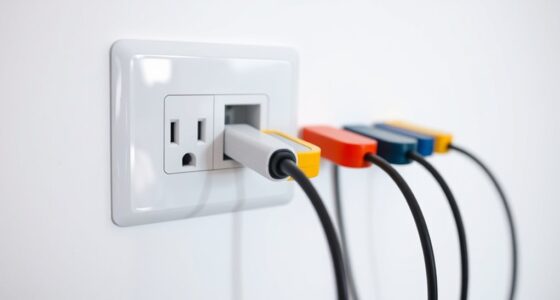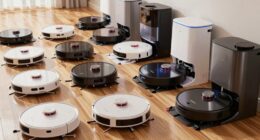When shopping for appliances, skip the sales pitch by asking seven key questions. Inquire about specific features that match your household needs, such as energy efficiency, storage options, and cycle choices. Pay attention to warranty details, including coverage and duration, to avoid surprises later. Look for red flags like vague warranties, which may indicate lower confidence from manufacturers. Asking these questions guarantees you focus on true value—stick around to get all the essential prompts you should use.
Key Takeaways
- Ask detailed questions about product features relevant to your household needs, avoiding reliance on promotional claims.
- Inquire about the appliance’s typical shelf life and durability to assess long-term value.
- Clarify warranty coverage, duration, and any extended options to understand future protection.
- Watch for vague warranty details, which may indicate lower manufacturer confidence or potential issues.
- Evaluate the product’s reputation and reliability beyond sales pitches by researching manufacturer reviews and warranty terms.
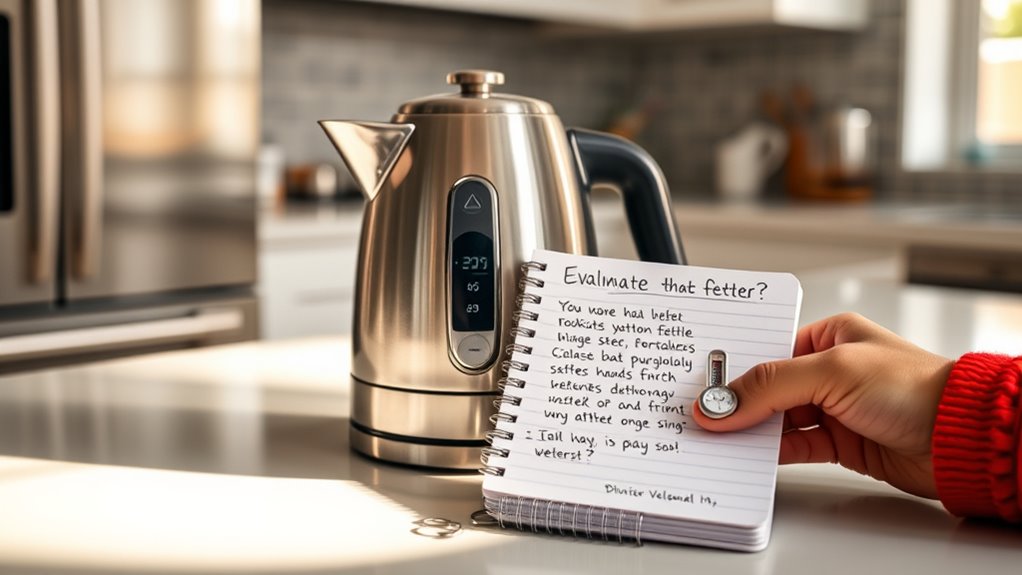
Ever feel overwhelmed by slick sales pitches that seem to push you away instead of pulling you in? It’s a common experience, especially when shopping for appliances. Retailers often highlight flashy features or tempting discounts, but rushing into a purchase without asking the right questions can lead to buyer’s remorse. Instead of falling for the hype, take a step back and focus on what truly matters. One of the best ways to do that is by asking about product features. Don’t just accept the salesperson’s claims at face value—dig deeper. Ask what specific functionalities the appliance offers and whether those features align with your needs. For instance, if you’re eyeing a refrigerator, inquire about its energy efficiency, storage capacity, and special compartments. If it’s a washing machine, find out about cycle options, water consumption, and noise levels. These details help you assess whether the product will genuinely serve your household, rather than just impress you on paper. Additionally, understanding the typical shelf life of certain products can help you gauge their durability and long-term value. Alongside product features, warranty details are equally important. Many buyers overlook this aspect, only to regret it later when repairs or replacements become necessary. Before making a final decision, ask what the warranty covers and for how long. Is it a full coverage warranty, or are there specific parts and repairs that aren’t included? Find out if there’s an extended warranty option and what it costs. Knowing the warranty terms upfront saves you from surprises down the line and provides peace of mind. It also indicates the manufacturer’s confidence in their product’s durability. If the warranty details seem vague or limited, consider whether that’s a red flag or if you’re comfortable taking on potential repair costs later.
Frequently Asked Questions
How Do I Determine the Right Size for My Appliance?
To determine the right size for your appliance, start by measuring your available space, focusing on appliance dimensions and clearance requirements. Consider your household’s needs and how you’ll use the appliance daily. Space planning is essential—leave enough room for ventilation and easy access. Check manufacturer specifications and compare them to your measurements. This way, you guarantee a perfect fit that enhances functionality without overcrowding your space.
What Energy Efficiency Features Should I Look For?
Did you know that appliances with energy labels use up to 50% less power? When shopping, look for energy efficiency features like those labels, which show how much energy an appliance consumes. Eco-friendly options often have higher upfront costs but save you money long-term through lower utility bills. Prioritize appliances with top energy ratings to reduce your environmental impact and enjoy savings on your energy bills.
Are There Maintenance Tips to Extend Appliance Lifespan?
To extend your appliance’s lifespan, focus on regular appliance cleaning and timely filter replacement. Keep vents and coils free of dust and debris to guarantee efficiency. Check and follow the manufacturer’s instructions for cleaning routines. Replacing filters when needed prevents buildup and damage. These simple maintenance tips help your appliance run smoothly longer, saving you money and hassle in the long run.
How Do I Compare Warranties Between Brands?
Imagine you’re choosing a refrigerator and see two brands with similar prices. You compare their warranty coverage and find one offers five years, while the other only provides two. Check each brand’s reputation for customer service, too. A longer warranty is great, but if the brand’s service is poor, it might not be worthwhile. Always read the fine print to understand what’s covered and guarantee you get the best value.
What Are Common Hidden Costs When Purchasing Appliances?
When buying appliances, you’re often surprised by hidden fees like high installation costs or extra charges for delivery, extended warranties, or disposal of old units. Always ask about these upfront to avoid unexpected expenses. Check if there are any additional fees for special installation requirements or removal of old appliances. Being aware of these hidden costs helps you budget accurately and prevents surprises at checkout.
Conclusion
Don’t let sales pitches blind you—these seven questions are your secret weapon. By asking the right questions, you’ll dodge costly mistakes and become an appliance ninja, making smarter choices with confidence. Remember, a well-informed buyer wields more power than a thousand sales pitches combined. So, stay sharp, ask away, and turn the appliance-buying process into a breeze. Your future self will thank you for making a choice so savvy, it’ll make even salespeople do a double take!
